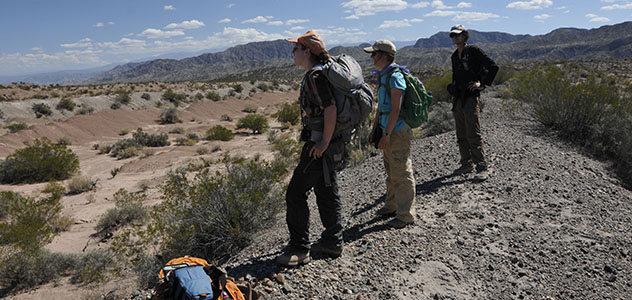Studying Applied Environmental Geosciences at Weber State
Weber State’s applied environmental geosciences major prepares students interested in the study of the Earth for careers in environmental science or applied geoscience.
Applied Environmental Geosciences Highlights
Weber State’s chapter of Sigma Gamma Epsilon, the national honor/pre-professional society for academically successful geosciences students, won a national service award in 2017.
Beyond the Classroom
As an applied environmental geosciences major, you can gain practical experience through internships. You can also qualify to conduct your own original research with financial backing from Weber State’s Office of Undergraduate Research.
Join Weber State’s Geology Club to meet your peers, network with professionals and spend fall break in Yellowstone.

Mike Fowles
Class of 2018
“Traveling to, exploring, investigating and learning about some of the most beautiful geological features throughout Utah and neighboring states is an added bonus to this program.”

